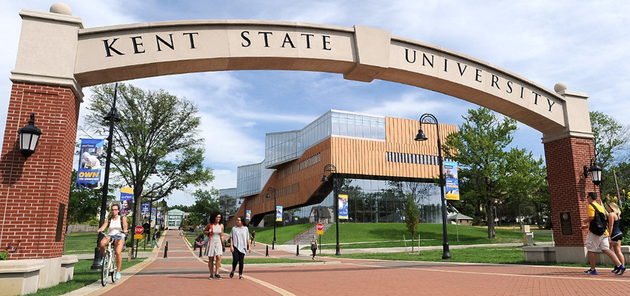
Excerpt from the Record-Courier (Kent, Ohio)
As Kent State University prepares for the process of hiring a new president, it’s worthwhile to consider how other public universities have approached the task.
Kent State President Beverly Warren announced last month that she will step down from her post in July.
KSU’s two most recent president searches were secretive, prompting critics to assail the school. Both times, names of finalists were not released. And each time, the search committee brought the successful candidate to campus as a done deal, rather than inviting three or four finalists to appear at forums, as many public schools do.
When Warren was hired, the university was widely criticized for shredding documents related to the hiring process and deferring to a search firm to decide which records were released to the public.
At the time, KSU Spokesman Eric Mansfield maintained that “Kent State University neither has violated any public records nor has the university violated or failed to conform to any internal policy. We have turned over all records that are relevant.”
Kent State is not alone in adopting a closed final interviewing process.
In 2013, Ohio State University attracted about 300 candidates during its search to replace Gordon Gee. A search committee cut the pool to 20 and eventually interviewed five, but Ohio State did not release the names of the candidates or finalists other than Dr. Michael Drake, who was hired in January 2014. It also took the university nearly four months to make public Drake’s contract and the amount of public money spent on the presidential search.
And in 2017, Cleveland State University kept its finalists for the top job secret, with the search committee saying that confidentiality was critical to attract candidates. The university did the same during its presidential search in 2009, according to a story in the Plain Dealer.
Other public universities, however, have made the final stages of their interviewing process more of a public affair.
When Youngstown State University hired Jim Tressel as its newest president in 2014, the board of trustees received the names of either the finalists or semi-finalists from a search committee that ran the first part of the search process.
That committee included representatives from a variety of stakeholder groups, including students, faculty and alumni, according to Ron Cole, Youngstown State University director of communications. Three finalists visited campus to meet the community, he said.
“We operate on a theory of shared governance so that everyone on campus and in the community has a voice,” Cole said. “We actually had media come and, on many occasions, the media would do interviews.”
The University of Akron also invited its final three candidates to campus when it hired Dr. Scott Scarborough, according to University of Akron Spokesman Wayne Hill.
UA is currently seeking a president after Matthew Wilson, who replaced Scarborough, resigned. The university has hired a firm to conduct the search.
When the University of Toledo hired President Sharon Gaber, it introduced her and two other finalists to the campus community prior to a final decision, according to Tyrel Linkhorn, a university spokesman.
“All three of those finalists were invited to multi-day visits at the University of Toledo to tour the university’s campuses, meet with faculty, staff, students, administrators, alumni and community members and participate in a pair of question-and-answer forums,” Linkhorn said.
Wright State University followed a similar procedure when hiring its president in 2017.
Outlined in the minutes of a March 2017 Board of Trustees meeting, the process of hiring Wright State University President Dr. Cheryl B. Schrader included a campus visit for the final three candidates. The candidates also met with key administrators and took part in open forums and public receptions.
KSU trustees, who are responsible for naming the next president, have yet to detail how the upcoming search will be conducted.
University spokesman Eric Mansfield said trustees plan to “discuss aspects of the presidential search” at the Dec. 5 board meeting.
Late last month, several days after Warren revealed her plans to retire, the university issued a request for proposals from search firms “to identify and screen candidates” for her replacement. The proposals were due Nov. 2.

